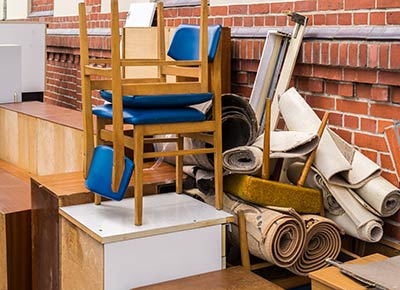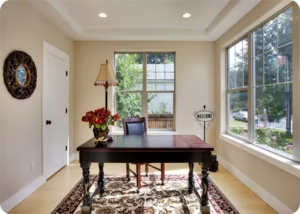Understanding the Möbelentsorgung Process in Berlin: A Step-by-Step Approach

Proper furniture disposal is a significant aspect of responsible living in urban areas like Berlin. Whether you are relocating, renovating, or simply getting rid of old furniture, understanding the process of Möbelentsorgung Berlin is essential for a smooth and legal experience. This step-by-step guide aims to help residents and newcomers navigate the furniture disposal system efficiently and in an environmentally conscious manner.
What is Möbelentsorgung and Why It Matters
Möbelentsorgung refers to the disposal of unwanted furniture. In a city as structured as Berlin, disposing of bulky waste, including furniture, must follow specific municipal guidelines. Improper disposal can lead to hefty fines and environmental harm. Since old furniture may contain recyclable materials or potentially hazardous components, following the correct disposal procedures contributes to sustainability and keeps neighborhoods clean and safe.
Step 1: Assess What You Want to Dispose
The first step in the Möbelentsorgung Berlin process is identifying which items need to be removed. This includes broken chairs, sofas, tables, beds, shelves, wardrobes, and even mattresses. Evaluate if any items are still usable, as donation or resale might be a better alternative. For items in good condition, consider offering them to charities, shelters, or local donation centers. Several organizations in Berlin, like Berliner Stadtmission or Oxfam, accept used furniture.
Step 2: Explore Reuse and Recycling Options
Before booking a pickup or heading to a recycling yard, it’s worth checking if your furniture can be reused. Platforms like eBay Kleinanzeigen or neighborhood Facebook groups are ideal for giving away or selling furniture. Reuse extends the life cycle of furniture and reduces landfill waste. If reuse is not feasible, recycling should be the next option. Berlin has an efficient recycling system where furniture materials like wood, metal, and textiles can be sorted and repurposed.
Step 3: Understand Sperrmüll and Its Role
In Berlin, bulky waste disposal (Sperrmüll) includes large household items that do not fit into regular trash bins. This is a key component of Möbelentsorgung Berlin. Residents are allowed to schedule free or paid collection through the Berliner Stadtreinigung (BSR). Items typically allowed in Sperrmüll include furniture, carpets, large toys, and mattresses. However, electrical appliances and construction waste require separate arrangements.
Step 4: Book a Collection with BSR
For a hassle-free experience, booking a furniture collection service through the official BSR website is one of the most reliable options. You can schedule a pickup date and select the volume of items to be collected. BSR usually offers appointments within a few days, and you’ll receive instructions for placing the items outside. Ensure that everything is placed correctly and only the approved items are included. Items must be placed in front of the property on the scheduled day, typically by 6:00 AM.
Step 5: Consider Immediate Disposal Services
If you are in a hurry or need same-day removal, numerous private companies in Berlin specialize in rapid Möbelentsorgung. These services come at a cost, but they are efficient and often include additional help like carrying furniture from inside your home to the disposal truck. These providers are especially useful when BSR’s waiting times are long or if your disposal needs fall outside their criteria.
Step 6: Use Recycling Yards (Recyclinghöfe)
For those who prefer to dispose of furniture themselves, Berlin has multiple recycling centers (Recyclinghöfe) managed by BSR. These facilities accept various types of bulky waste, including furniture. This option is free for small quantities (up to 3 cubic meters), making it ideal for minor clear-outs. Remember to bring identification, as some yards may ask for proof of residency. Be prepared to sort the items according to material types like wood, metal, or fabric.
Step 7: Special Disposal for Hazardous Components
Some furniture pieces contain hazardous materials, such as treated wood or chemical-based coatings. These items require special handling and may not be accepted at regular Sperrmüll or recycling centers. Check with BSR or your chosen private service provider for specific guidance. They may refer you to hazardous waste collection points or offer separate pickup services.
Step 8: Ensure Legal Compliance
Möbelentsorgung Berlin must be done according to city regulations to avoid fines. Illegal dumping, even temporarily on sidewalks, is strictly prohibited and monitored by the Ordnungsamt. Each district in Berlin enforces cleanliness regulations, and neighbors may report violations. To remain compliant, always schedule a collection or personally deliver furniture to a recognized recycling point. Leaving items in the hallway, backyard, or street without arrangement can result in penalties ranging from €50 to €2,500.
Step 9: Get Assistance if Needed
Not everyone is capable of lifting or transporting heavy furniture. For seniors, individuals with disabilities, or those without vehicle access, there are assistance options. BSR offers a special pick-up service for physically challenged residents, and many private companies include manpower in their quotes. You can also hire local movers to help transport items to recycling centers.
Step 10: Stay Informed About Updates
Municipal policies and disposal fees in Berlin can change. To stay informed, regularly visit the BSR website or subscribe to newsletters related to waste management in Berlin. It is especially important during holidays, strikes, or seasonal shifts when services may be delayed or rerouted. Staying updated ensures that your Möbelentsorgung Berlin process is efficient and stress-free.
Common Mistakes to Avoid
Many Berlin residents unknowingly make errors in the furniture disposal process. Some common mistakes include mixing electrical items with Sperrmüll, failing to schedule a collection, leaving furniture on sidewalks outside the appointed day, or including prohibited materials like renovation waste. Avoiding these mistakes ensures compliance with regulations and contributes to a cleaner city.
Benefits of Proper Möbelentsorgung
Proper furniture disposal not only helps the environment but also supports Berlin’s waste reduction goals. It reduces landfill usage, promotes recycling, and keeps neighborhoods tidy. Additionally, some furniture collected by BSR is refurbished and sold at the BSR NochMall—Berlin’s department store for reused goods—supporting the circular economy.
Final Thoughts
Understanding the process of Möbelentsorgung Berlin is crucial for anyone living in the city. Whether you choose public services like BSR or private disposal companies, the key is planning ahead, knowing your options, and following legal guidelines. By making informed decisions, you can dispose of unwanted furniture responsibly, efficiently, and without stress.





